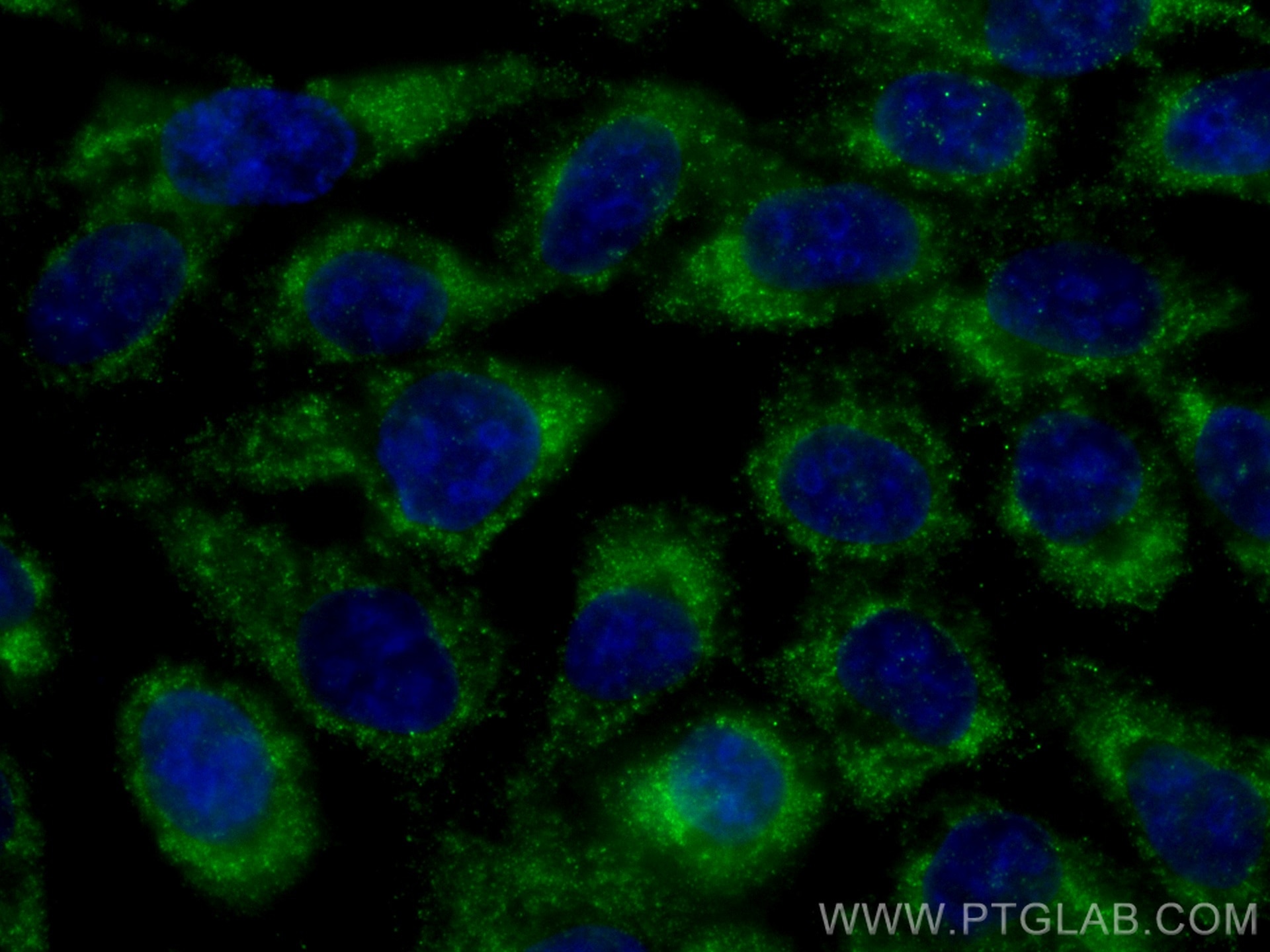Validation Data Gallery
Filter:
Tested Applications
| Positive IF/ICC detected in | A431 cells |
Recommended dilution
| Application | Dilution |
|---|---|
| Immunofluorescence (IF)/ICC | IF/ICC : 1:50-1:500 |
| It is recommended that this reagent should be titrated in each testing system to obtain optimal results. | |
| Sample-dependent, Check data in validation data gallery. | |
Product Information
CL488-67294 targets GNMT in IF/ICC applications and shows reactivity with Human, Mouse, Pig, Rat samples.
| Tested Reactivity | Human, Mouse, Pig, Rat |
| Host / Isotype | Mouse / IgG1 |
| Class | Monoclonal |
| Type | Antibody |
| Immunogen | GNMT fusion protein Ag4598 相同性解析による交差性が予測される生物種 |
| Full Name | glycine N-methyltransferase |
| Calculated molecular weight | 295 aa, 33 kDa |
| Observed molecular weight | 33 kDa |
| GenBank accession number | BC032627 |
| Gene Symbol | GNMT |
| Gene ID (NCBI) | 27232 |
| RRID | AB_2934530 |
| Conjugate | CoraLite® Plus 488 Fluorescent Dye |
| Excitation/Emission maxima wavelengths | 493 nm / 522 nm |
| Form | Liquid |
| Purification Method | Protein G purification |
| UNIPROT ID | Q14749 |
| Storage Buffer | PBS with 50% glycerol, 0.05% Proclin300, 0.5% BSA , pH 7.3 |
| Storage Conditions | Store at -20°C. Avoid exposure to light. Stable for one year after shipment. Aliquoting is unnecessary for -20oC storage. |
Background Information
Glycine N-methyltransferase (GNMT, EC 2.1.1.20) was found originally as an enzyme regulating the ratio of SAM to S-adenosyl- homocysteine. GNMT is conservative among different animal species. Glycine-N methyltransferase (GNMT) is a potential tumor suppressor that is commonly inactivated in human hepatoma. GNMT is abundant in liver, but very low in HepG2 cells (PMID: 12566990).
Protocols
| Product Specific Protocols | |
|---|---|
| IF protocol for CL Plus 488 GNMT antibody CL488-67294 | Download protocol |
| Standard Protocols | |
|---|---|
| Click here to view our Standard Protocols |
